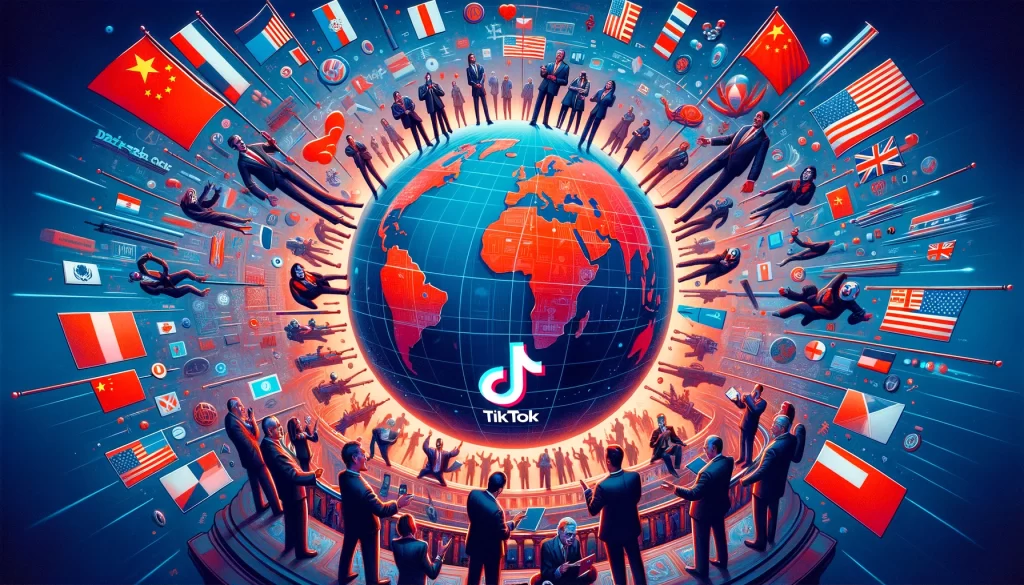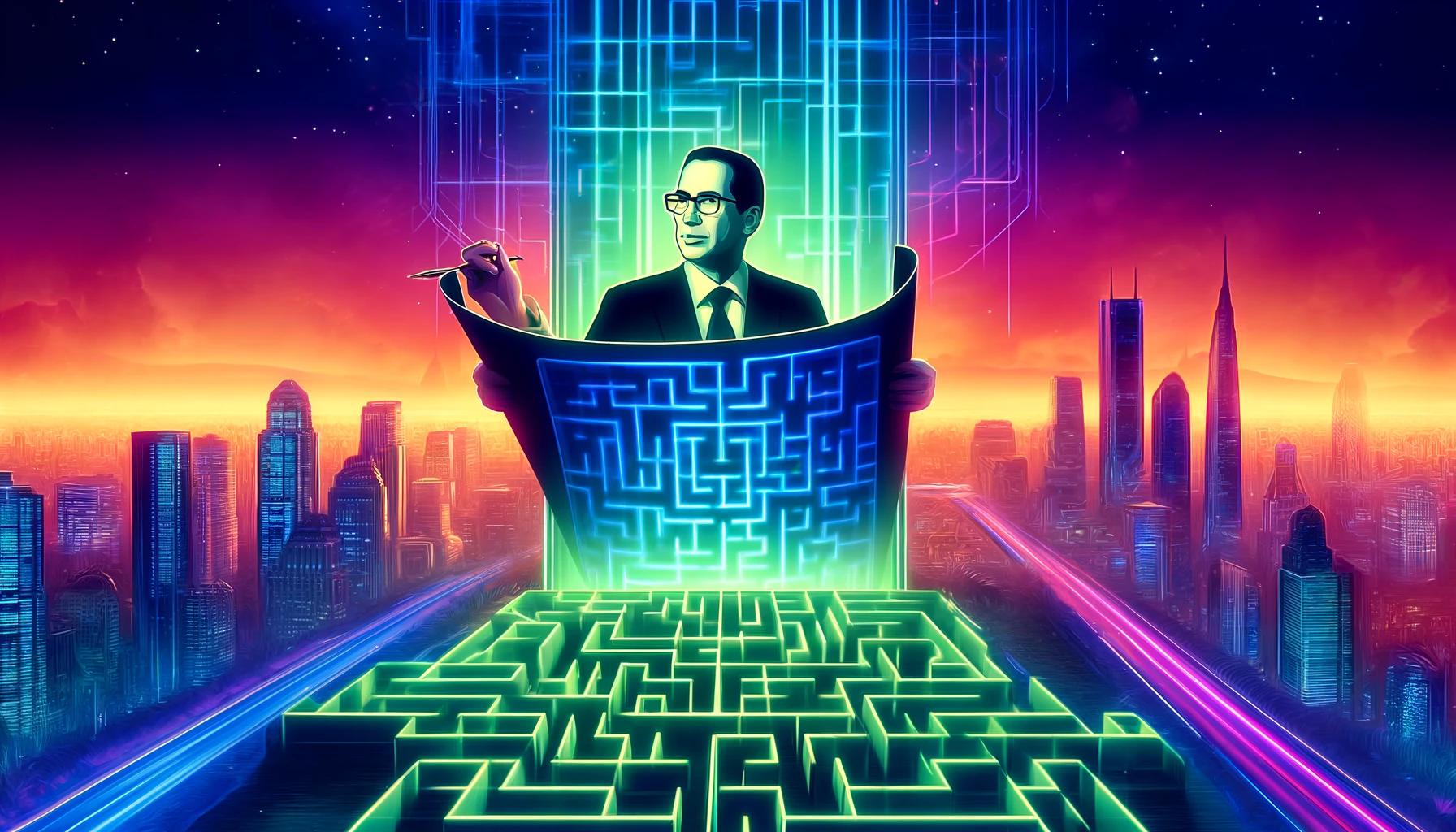Steven Mnuchin, the former Treasury Secretary under President Donald Trump, has shared his ambitious plan with wealthy investors about taking over the wildly popular video app TikTok. Mnuchin, known for his background in investment banking, has approached potential investors with a bold strategy: rebuild TikTok from the ground up. This proposal aims to navigate two significant challenges – the app’s hefty estimated price tag of over $100 billion and the Chinese government’s ban on exporting TikTok’s highly valued recommendation algorithms.
Mnuchin’s strategy involves purchasing TikTok without its key algorithmic code, which is essential for its operation but blocked from export by China. This move would require his consortium to essentially recreate the app’s complex codebase before it could function again. Mnuchin believes this approach could even allow them to acquire TikTok at a discount, according to individuals familiar with his pitch who chose to remain anonymous.
The idea, however, has met with skepticism from observers familiar with the technology sector. TikTok’s success is largely attributed to its algorithm’s ability to surprise users with video recommendations, a feature that has set it apart in the competitive landscape. Replicating this success, especially against giants like Meta (owner of Instagram) and Google (owner of YouTube), is viewed as a daunting task. Matt Perault, a technology policy expert, emphasized the challenge, noting that even the biggest tech companies have struggled to develop a comparable algorithm despite significant investments.
Mnuchin’s plan is ambitious, especially considering his background does not include social media management. Furthermore, TikTok’s parent company, ByteDance, is not currently looking to sell the app. The U.S. House of Representatives passed a bill requiring ByteDance to divest TikTok or face a ban, but this effort has stalled in the Senate and could face legal challenges.

The task of replicating TikTok’s intricate code and features, including its vast video library, user interactions, and various in-app tools, is likened to rebuilding a platform as complex as Facebook. Experts argue that accomplishing this in the six-month deadline before a potential nationwide ban is unrealistic.
Mnuchin, who has not commented directly on these plans, has hinted at a proposal that involves rebuilding TikTok in the U.S. without transferring critical Chinese technology. His discussions have included engagements with billionaires and major corporations, indicating a significant level of interest in the proposal.
This initiative follows Mnuchin’s role in the Trump administration’s efforts to force TikTok’s sale, citing national security concerns. These actions, along with Mnuchin’s private equity firm’s connections to foreign investments, could raise additional scrutiny.
China’s stance on the issue is critical, as the country has shown little willingness to allow a forced sale of TikTok. The Chinese government could employ its regulatory system to block any deal, emphasizing its right to protect Chinese enterprises. The situation is complex, with implications for international trade, technology competition, and geopolitical relations. Critics argue that Mnuchin’s involvement might further strain U.S.-China relations and highlight tensions between free enterprise and government intervention in the technology sector.
This article is based on the following article:
https://www.washingtonpost.com/technology/2024/03/30/tiktok-mnuchin-sale-algorithm/

Background Information
Understanding these key points provides a solid foundation for comprehending the complexities and implications of Steven Mnuchin’s proposal to take over TikTok. This background information helps illuminate the challenges and considerations involved in such a venture, including technological, financial, and geopolitical factors.
1. Who is Steven Mnuchin?
Steven Mnuchin is a significant figure in American finance and politics. Before his involvement in politics, Mnuchin had a long career in investment banking, notably at Goldman Sachs. He later became involved in the movie industry, producing several successful films. In 2017, Mnuchin was appointed as the United States Secretary of the Treasury under President Donald Trump, serving until 2021. His role included overseeing the country’s economic policy and managing federal finances.
2. What is TikTok, and why is it significant?
TikTok is a social media platform where users can create, share, and discover short videos. The app has gained immense popularity worldwide, especially among younger audiences, for its engaging content and highly personalized algorithm that recommends videos. TikTok’s success lies in its ability to keep users engaged by learning their preferences and showing them content they are likely to enjoy.
3. Understanding Algorithms
An algorithm in the context of social media like TikTok refers to a set of computer-programmed rules that determine which content appears to each user. TikTok’s algorithm is particularly adept at understanding user preferences based on their interactions with the app, which has been crucial to its success. These algorithms are complex and considered valuable intellectual property.
4. The Concept of National Security Concerns
National security concerns regarding TikTok stem from its parent company, ByteDance, being based in China. U.S. officials have raised concerns that the Chinese government could access user data collected by TikTok, potentially compromising personal information and national security. These concerns have led to discussions about banning the app or forcing its sale to a U.S.-based company.
5. International Business and Government Regulations
The article touches on complex international business and government regulation issues, including export controls and data protection laws. Export controls are legal regulations that countries impose to restrict the export of certain technologies or data for national security reasons. Data protection laws govern how companies can collect, use, and share personal data.
6. ByteDance and Its Ownership Structure
ByteDance, TikTok’s parent company, is a private company that operates a range of content platforms. It is not state-owned but has faced scrutiny due to China’s regulatory environment, which can influence private companies’ operations. The ownership of ByteDance is a mix of international investors and its founders, highlighting the global interest in the company’s success.

Debate/Essay Questions
- Should governments have the authority to force foreign-owned companies to divest their assets over national security concerns?
- Does the potential acquisition of TikTok by a consortium led by Steven Mnuchin present a conflict of interest, considering his previous role as Treasury Secretary?
Please subscribe to Insight Fortnight, our biweekly newsletter!
